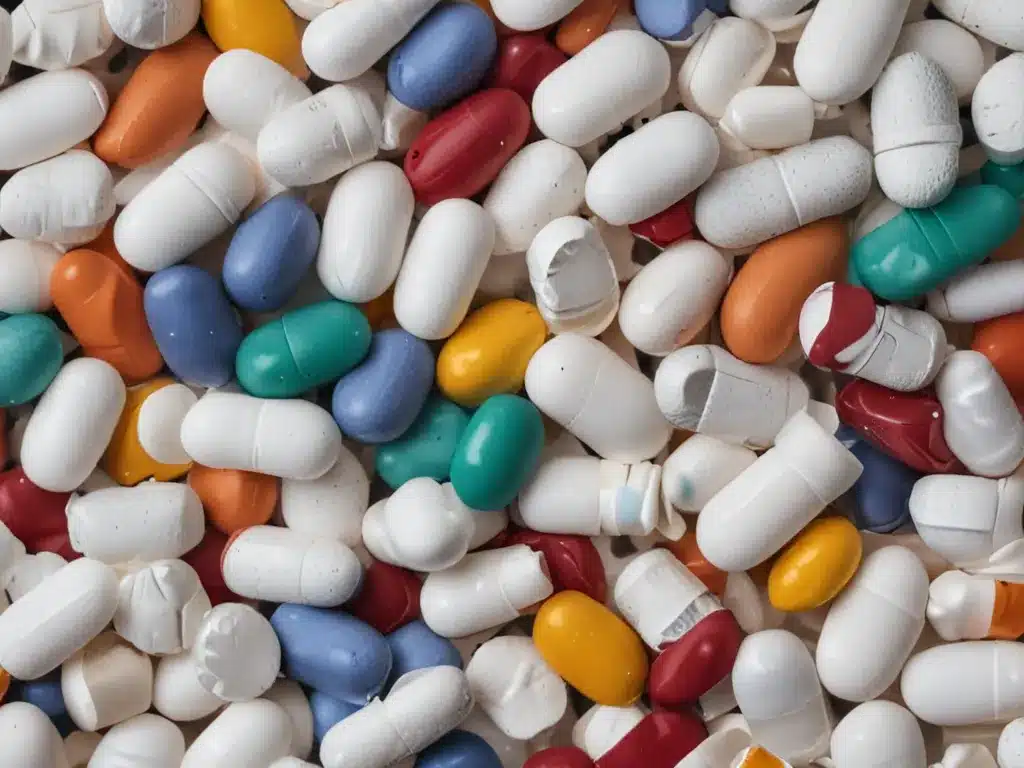Why it’s important to dispose of outdated medicines
It’s easy to let outdated prescription and over-the-counter medicines build up in your home. However, it’s important to properly dispose of these medicines for several reasons:
-
Safety: Outdated medicines can be risky to take and may have lost their effectiveness. Taking expired medicines could potentially cause harmful side effects.
-
Prevent misuse: Medicines that have expired or are no longer needed could be accidentally taken by others, especially children and teens. Properly disposing of them removes the risk.
-
Environmental impact: Disposing of medicines down the drain or toilet can introduce chemicals into water supplies. Proper disposal keeps medicines out of landfills and water.
As someone concerned about health and safety, I want to make sure I regularly go through my medicines and properly dispose of any that are outdated. In this article, I’ll discuss the recommended guidelines for disposing of expired or unneeded medicines.
How to identify expired medicines
The first step is identifying which medicines in your home are expired or obsolete. Here are some tips for checking expiration dates:
-
Prescription bottles: Look for an expiration date printed on the label. Never take expired prescription medicines.
-
Over-the-counter bottles: Check the expiration date printed on the packaging. As a rule of thumb, don’t take OTC medicines past this date.
-
Other containers: If repackaged in another container, check the original packaging if you still have it. Otherwise, use your best judgement on its age.
-
Look up online: For some medicines, you can look up expiration information online if it’s not clear on the packaging.
-
When in doubt, throw it out: If you’re unsure of the expiration date of a medicine, dispose of it just to be safe.
Regularly checking medicine expiration dates and discarding those that are outdated helps ensure I’m not taking any unnecessary risks with my health.
How to dispose of medicines safely
Once I’ve identified the expired or unneeded medicines in my home, the next step is properly disposing of them. Here are some safe disposal methods recommended by the FDA:
-
Take-back programs: Many pharmacies, hospitals, and health clinics offer take-back programs where you can drop off medicines with no questions asked. This is the easiest and most environmentally friendly disposal method.
-
Mail-back programs: Some medicine producers provide pre-paid envelopes you can use to mail expired or unused medicines to be disposed of safely.
-
Medicine take-back events: Your community may hold periodic take-back events for convenient, responsible medicine disposal.
-
Mix with unpalatable substance: For medicines in pill form, mix with coffee grounds, kitty litter, or something similar before throwing away to dissuade consumption. Do not crush pills.
-
Seal in container: Tape medicine containers shut and hide them in your trash to conceal contents. Do not flush medicines down the drain unless packaging says it’s okay.
Proper disposal keeps medicines out of the wrong hands and the environment. I’ll be sure to use recommended methods like take-back programs whenever possible.
Disposing of specific medicine types
Certain types of medicines require special precautions when being disposed of at home:
-
Controlled substances: Medicines with potential for abuse like opioid pain relievers require specific disposal methods to prevent misuse. Mix with unpalatable substance and dispose as recommended by the FDA.
-
Injectables: Syringes and other sharp objects must be placed in a sealed puncture-proof container before disposal to prevent needlestick injuries.
-
Chemotherapy drugs: Take care when handling and disposing of chemotherapy medicines by wearing gloves and keeping products contained.
-
Mercury thermometers: If disposing of an old mercury thermometer, place it secure container before putting in trash to prevent mercury exposure.
For any medicines I’m unsure how to handle, I’ll consult my pharmacist or healthcare provider for proper and safe disposal recommendations. Responsible disposal protects my safety and that of my community.
Being proactive about medicine disposal
As I learned, it’s important to be proactive about regularly disposing of outdated or unneeded medicines in my home. Here are some ways I can stay on top of it:
-
Set reminders to check medicine expiration dates every few months.
-
Create a designated space to gather medicines for disposal.
-
Keep a list of nearby take-back program locations.
-
Plan medicine cabinet clean-outs around community take-back events.
-
Talk to my doctor about safe disposal options during appointments.
-
Encourage family and friends to properly dispose of their medicines too.
With some organization and reminders, I can develop the habit of frequently clearing out old medicines. Properly disposing of outdated or unnecessary medicines takes them out of my home and protects the health of my family and community. It’s a simple step I can take to prevent misuse and environmental contamination.







